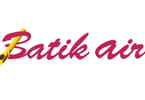Aeroflot, the Russian airline, is facing an uncomfortable future as its majority shareholder, the state, appears intent on reviving the rest of the country’s struggling airline sector by creating another national carrier.
The threat of a second national champion sits uncomfortably with Alexander Lebedev, the Russian oligarch and the largest private shareholder in Aeroflot, who is learning just how cruel the aviation sector can be.
“The airline industry is one of the riskiest, most unprofitable industries in the world. I don’t know why anybody does this,” he has said.
Private owners and shareholders in the Russian airline industry, such as Mr Lebedev, are in trouble. Many private companies have been bankrupted by the combination of the high price of jet fuel this summer and the unavailability of credit in the past few months.
Mr Lebedev and others have pledged shareholdings as collateral for loans and face margin calls as the stock market plunges.
The future of the industry hangs in the balance and, as in other troubled sectors of the Russian economy, the Kremlin is the only player with the cash and the power to determine winners and losers.
Rather than bailing out the privately run airlines, the Kremlin has aggressively championed a plan to fold failing private assets into a state airline, Rosavia, which is expected to be controlled by a government bureaucrat close to Vladimir Putin, the prime minister.
The turmoil in Russia’s airline industry is being closely watched in other sectors. It is the first industry, but probably not the last, to face widescale bankruptcy and forced consolidation by the government.
Rosavia does not yet exist as a legal entity and has no website or press spokesman. Even its name appears undecided. It was identified in the press as “Russian Airlines” until Aeroflot objected.
While Rosavia is being formed, the assets will be managed by Russian Technologies, or Rostechnologia, a state holding company focused on defence assets, headed by Sergei Chemezov, a close Putin ally from the days when both men were KGB officers. These assets include more than 100 aircraft from 11 state and private airlines, including bankrupted regional carriers KrasAir, Domodedovo Airlines, Samara Airlines and Atlant-Soyuz Airlines.
“The airline industry is one of the industries that is most affected by the financial crisis,” said Natalia Sorokina, an airline industry analyst at Uralsib, the Moscow investment bank.
According to Russian media reports, Rosavia, once formed, will be 51 per cent owned by Russian Technologies. The other 49 per cent could be controlled by the Moscow city government headed by mayor Yuri Luzhkov, who is also close to the Kremlin. But Ms Sorokina cautioned that it was possible the shareholding structure would change.
Mr Chemezov and Mr Luzhkov seem to have set their sights on Aeroflot as well. In November, both men asked Russia’s government to take away one of Aeroflot’s main revenue streams: the fees paid by foreign airlines to the Russian government for overflight rights.
These fees bring in about $300m per year, equivalent to Aeroflot’s entire 2007 profits, according to Mr Lebedev. The government has so far made no decision on the request, but the uncertainty has hit Aeroflot’s share price dramatically.
Mr Lebedev is fighting to save his stake in the airline, thought to be as high as 30 per cent, which allows him to block decisions by the board.
However, most of his stake – about 25 per cent of Aeroflot – is pledged against a $400m loan from Deutsche Bank. The value of the stock is down 80 per cent from its high this year and he has faced a series of margin calls, which he has so far paid from his own funds.
“I have had to search all my pockets and found some money,” Mr Lebedev told the Financial Times last week, after meeting yet another margin for $23m the previous weekend. He fears that if his shareholding falls below the 25 per cent blocking stake, the state will dilute his ownership further by issuing new stock.
So far he has been denied state funding to bail him out, though the Kremlin has pledged $50bn in state funding to help other Russian businesses meet foreign credit obligations.
Other oligarchs with better links to the Kremlin, such as Mikhail Fridman of Alfa Bank and Oleg Deripaska of Rusal, the metals giant, have received multibillion-dollar bail-out loans. Mr Lebedev is seeking $130m in funds to pay off his margin calls.
He has frequently been an outspoken critic of the Kremlin, and owns Novaya Gazeta, an opposition-oriented newspaper known for sharp criticism of the government. But Mr Lebedev declined to say whether the decision to deny him a state loan was politically motivated.
“It’s not very clear how this procedure works,” he said of the bail-out process.
WHAT TO TAKE AWAY FROM THIS ARTICLE:
- The future of the industry hangs in the balance and, as in other troubled sectors of the Russian economy, the Kremlin is the only player with the cash and the power to determine winners and losers.
- Rather than bailing out the privately run airlines, the Kremlin has aggressively championed a plan to fold failing private assets into a state airline, Rosavia, which is expected to be controlled by a government bureaucrat close to Vladimir Putin, the prime minister.
- The value of the stock is down 80 per cent from its high this year and he has faced a series of margin calls, which he has so far paid from his own funds.






















